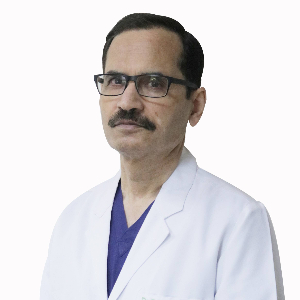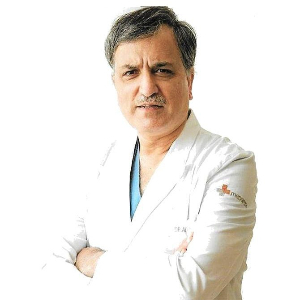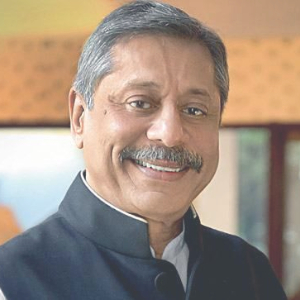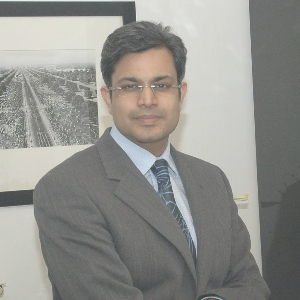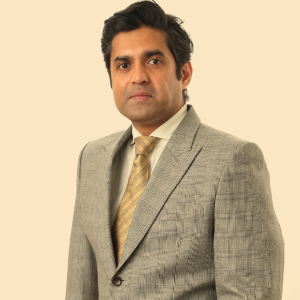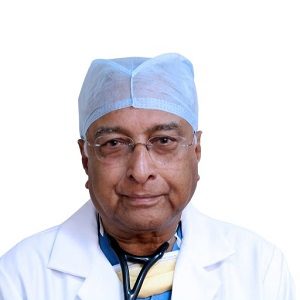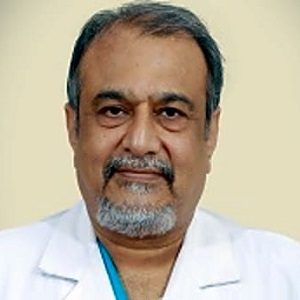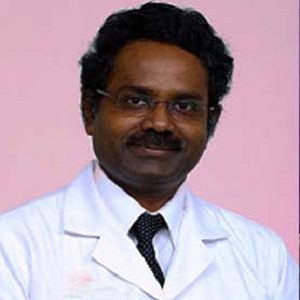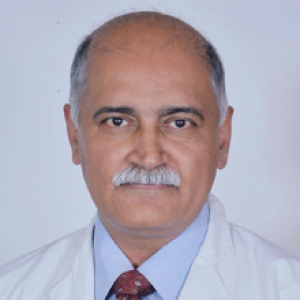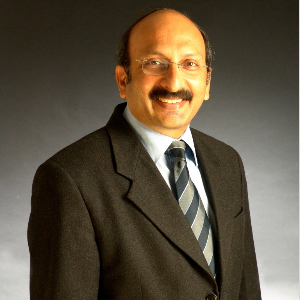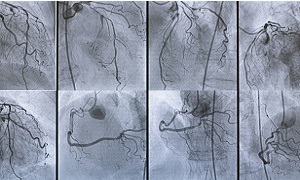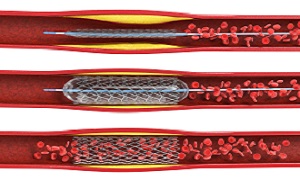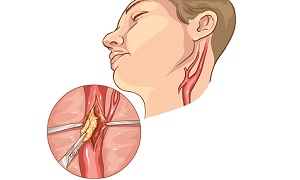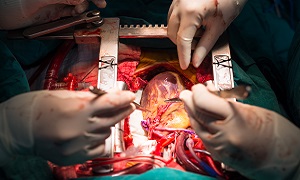Best Doctors in India for Atherosclerosis Treatment
- Cardiac Surgeon, New Delhi, India
- Over 30 years’ experience
Profile Highlights:
- Dr. Z S Meharwal is a well-known cardiac surgeon in India who has performed over 20,000 cardiac surgeries, including some of the most complex and high-risk cardiac procedures.
- Dr. Meharwal is a member of the founding team that started the Fortis Escorts Heart Institute and has been associated with the hospital since then.
- His interest lies in Minimally Invasive Cardiac procedures, valve repair, and replacement, and heart transplants among other major vascular and thoracic surgeries.
- Cardio Thoracic & Vascular Surgeon, Gurugram, India
- Over 35 years’ experience
Profile Highlights:
- Dr. Anil Bhan is an excellent Cardiovascular and thoracic surgeon who has performed more than 15,000 cardiac and vascular surgeries that include heart transplant surgery, aortic aneurysm surgery, pediatric cardiac surgery, valve repairs, and peripheral vascular surgery among several others.
- He is one of the best pediatric cardiac surgeons in Delhi/ NCR and is credited with performing heart bypass surgery on the youngest patient in India in 2007 (18 months).
- He performed the first extracorporeal membrane oxygenation and was the first to use a harmonic scalpel for harvesting radial mammary artery conduits in India in 2000 and 1995 respectively.
- Cardiac Surgeon, Gurugram, India
- Over 40 years’ experience
Profile Highlights:
- Dr. Naresh Trehan is one of the most highly skilled and globally recognized cardiothoracic and vascular surgeons.
- He started his career as a Cardiac Surgeon at New York University Medical Centre where he performed over 3000 coronary artery surgeries and returned to India in 1988 and founded the Escorts Heart Institute and Research Center in New Delhi.
- Dr. Trehan is the Founder Chairman of Medanta- The Medicity in Gurugram, a premier multi-specialty hospital with state-of-the-art infrastructure and equipped with the latest and advanced technologies.
- Cardio Thoracic & Vascular Surgeon, New Delhi, India
- Over 16 years’ experience
Profile Highlights:
- Dr. Mukesh Goel is a reputed Cardio-Thoracic and Vascular surgeon serving as a Senior Consultant of the specialty at Indraprastha Apollo Hospital, New Delhi.
- He carries an experience of 16+ years and has performed more than 3000 different cardiac surgeries. Dr. Mukesh Goel is constantly on the lookout to develop new and innovative techniques to perform cardiac procedures that help in quick recovery with minimum incisions.
- His expertise lies in on and off-pump bypass surgeries and also finds interest in beating heart bypass surgery, open-heart surgery, minimally invasive heart valve surgery, and pediatric cardiac surgery among several others.
- Dr. Mukesh Goel received his training in CTVS from one of the most renowned cardiac surgeons in India, Dr. Naresh Trehan, and has been using the exposure to perform various advanced and complex heart surgeries.
- Before joining Indraprastha, Dr. Goel has been associated with other prestigious heart centers in India like Escorts Heart Institute, Apollo Hospital in New Delhi, and Medanta in Gurugram where he helped in starting the Heart surgery unit.
- He frequently gets invited to attend cardiology conferences and seminars to deliver lectures and present papers. He also regularly takes part in workshops and CMEs for cardiac surgeries.
- Dr. Mukesh Goel is a keen researcher and has published a number of papers and articles on CTVS in renowned national and international medical journals.
- Heart & Lung transplant Surgeon, Hyderabad, India
- Over 20 years’ experience
Profile Highlights:
- Dr. Sandeep Attawar is a highly recognized Heart and Lung transplant surgeon in India who has over 2 decades of experience as a cardiac surgeon and has performed more than 10,000 cardiac surgeries on adult and pediatric patients.
- Dr. Attawar specializes in all types of surgeries for adults as well as pediatric heart patients and finds interest in heart and lung transplant surgery, congenital heart surgery, Aortic aneurysm repair, and implantation of heart failure devices.
- Cardiac Surgeon, Cardiothoracic Surgeon, Vascular Surgeon; Chennai, India
- Over 45 years’ experience
Profile Highlights:
- Padma Bhushan awardee Dr. Girinath M R is a senior cardio-thoracic Surgeon in Chennai having experience of more than 45 years in Cardiac Surgery.
- Dr. M R Girinath was a fellow of Coronary Artery Surgery and Congenital Heart Surgery at the University of Wisconsin, USA.
- He provides consultation and diagnostic services for Mitral/Heart Valve Replacement, Cardiac Pacing, Invasive Cardiology, ABPM, Balloon Mitral Valvuloplasty, CT Angiography, etc.
- Cardiac Surgeon, Cardiothoracic Surgeon, Vascular Surgeon; Chennai, India
- Over 37 years’ experience
Profile Highlights:
- LF Sridhar is a well-known Cardiothoracic & Vascular Surgeon in Chennai, now working at Apollo Hospital in Greams Road, Chennai, and has an experience of 37 years in this arena.
- Some of the services available with the doctor are Mitral/Heart Valve Replacement, Cardiac Pacing, and Intra – Arterial Thrombolysis, Pacemaker Implantation, and bypass surgery besides the regular OPD procedures.
- Cardiac Surgeon, Cardiothoracic Surgeon, Vascular Surgeon, Chennai, India
- Over 25 years’ experience
Profile Highlights:
- Dr. K Madhan Kumar is a well-known Cardiac Surgeon in Tamil Nadu, having many years of experience in the domain.
- His experience came from practice and teaching. These days, he is associated with Apollo Hospital Greams Road in Chennai as a Senior Consultant Cardiothoracic & Transplant Surgeon.
- Dr. Kumar has also completed Fellowships in Cardiothoracic Surgery at SGH in London as well as ECMO, VAD, and transplantation at HH in London.
- Cardiac Surgeon, New Delhi, India
- Over 29 years’ experience
Profile Highlights:
- Dr. Kulbhushan Singh Dagar, a pioneer and an expert in the cardiology field earned his reputation through his exceptional performance in the field of complex congenital heart defects, especially for newborns.
- With over 29 years of experience, Dr. Dagar has dedicatedly performed complex surgical procedures by implementing innovative techniques and cutting-edge technologies in his procedures and is currently considered an asset to the cardiac industry, not just nationally, but internationally too!
- Interventional Cardiologist, Gurugram, India
- Over 30 years’ experience
Profile Highlights:
- Dr. Praveen Chandra is one of the most well-known and respected Interventional Cardiologists in India and performs over 5000 percutaneous and diagnostic interventions every year.
- He specializes in devising techniques that help minimize open surgeries. Dr. Praveen Chandra performed the first Percutaneous Aortic Valve implantation without surgery in India.
- He also developed techniques to reduce the number of patients requiring bypass surgeries and has been trying to make angioplasty techniques more accurate to help with the treatment of multiple blocked arteries.
Best Hospitals in India for Atherosclerosis Treatment
Indraprastha Apollo Hospital, New Delhi
- City: New Delhi, India
Hospital Highlights:
- Indraprastha Apollo Hospital is a 700-bedded multispecialty hospital in the heart of the capital of India. It is a part of Apollo Hospital group, one of India’s most reputed healthcare chains. Indraprastha Apollo Hospital has been accredited by Joint Commission International, making it the first internationally accredited hospital in the country in 2005.
- There are 52 specialties in the hospital with one of the best cardiology centers in the country. The hospital is also equipped with State of the art infrastructure facilities with the largest Sleep Lab in Asia and the largest number of ICU bed facilities in India.
- The hospital also has one of the largest dialysis units in India along with a dedicated Bone Marrow Transplant unit.
- The latest and highly advanced technologies that are installed in the hospital include Da Vinci Robotic Surgery System, PET-MR, PET-CT, Cobalt-based HDR Brachytherapy, Brain Lab Navigation System, Tilting MRI, Portable CT scanner, 3 Tesla MRI, 128 Slice CT scanner, DSA Lab, Endosonography, Hyperbaric Chamber and Fibro scan.
Fortis Memorial Research Institute, Gurugram
- City: Gurugram, India
Hospital Highlights:
- Fortis Memorial Research Institute is a multi-super-specialty, quaternary care hospital with 1000 beds. The hospital comprises reputed clinicians, and international faculty and is also equipped with cutting-edge technology. The hospital is a part of Fortis Healthcare Limited, a reputed chain of private hospitals in India.
- It is a NABH-accredited hospital that is spread across 11 acres of land and has a capacity of 1000 beds. The hospital has 55 specialties and is one of the premier health care centers in the Asia Pacific region popularly known as “the Mecca of Healthcare”.
- The hospital has 260 diagnostic centers and is also equipped with the latest and advanced techniques that include 3 Telsa which is the world’s first Digital MRI technology. The hospital also has world-class Radiation Therapy techniques which have been developed by leading technology experts from Elekta and Brain Lab.
Apollo Hospital, Chennai
- City: Chennai, India
Hospital Highlights:
- Apollo Hospitals, Chennai, is one of the best hospitals for heart care in India. Over the years, Apollo has expanded all over India, as a healthcare chain.
- India’s first ‘Only Pancreas’ transplant was performed in Apollo Hospital. The hospital is known for successfully performing Asia’s first en-bloc combined heart and liver transplant, and over the years, it has attained a remarkable achievement in the global healthcare space. Around 3-4 organ transplants are performed in the hospital per day.
- Equipped with over 500 beds, this hospital in Chennai was established in 1983 and since then has been among the most preferred hospital for patients from all over the world.
- The hospital holds accreditation of the NABH and JCI and is the first hospital in India to be ISO 9001 and ISO 14001 certified. It is also the first South Indian Hospital to receive subsequent reaccreditation from the JCI USA 4 times.
Medanta-The Medicity, Gurgaon
- City: Gurugram, India
Hospital Highlights:
- One of India’s best and largest multi-specialty hospitals, Medanta was built with the aim to bring India to the highest standards of medical care. The hospital has been providing the best medical services to its patients, since its inception, with care, commitment, and compassion.
- Equipped with 1250 beds, the hospital was founded by Dr. Naresh Trehan in the year 2009 with an aim to provide the best medical care at affordable costs. The hospital is spread across 43 acres and includes 45 operation theatres and 350 beds dedicated solely to ICU. The hospital includes over 800 doctors, and more than 22 specialty departments and has a dedicated floor for individual specialty in order to offer the best services under one roof.
- The hospital is considered one of the premier institutes in India for Cardiac Care and includes staffs and members of high caliber. The hospital has 6 distinct centers of excellence.
Max Super Specialty Hospital, New Delhi
- City: New Delhi, India
Hospital Highlights:
- One of the well-regarded providers in India committed to the highest standards of clinical excellence and patient care, Max Super Specialty Hospital is a part of Max Healthcare, which is the second-largest healthcare chain in India. Regarded as one of the most well-regarded healthcare providers in the country, Max Super Specialty Hospital is committed to the highest standards of clinical excellence as well as patient care. The hospital is also equipped with the latest technology as well as cutting-edge research. The hospital is known to deliver and ensure the highest level of patient care.
- The hospital has more than 500 beds and offers treatment for over 35 specialties. The hospital also holds the credit of having installed the first Brain Suite in Asia. This is a highly advanced Neurosurgical machine that allows MRI to be taken while surgery is ongoing.
- Other advanced and latest technologies are also installed in the hospital such as the 1.5 Tesla MRI machine, 64 Slice CT Angiography, 4D ECHO, LINAC, and 3.5T MRI machine.
Artemis Hospital, Gurugram
- City: Gurugram, India
Hospital Highlights:
- One of the most well-known hospitals in the Delhi NCR, Artemis Hospital is the first hospital in Gurugram to get accredited by the Joint Commission International.
- With more than 40 specialties, the hospital has been designed to be one of the most technically advanced hospitals in the country, with the best medical and surgical health care. The hospital has eleven special and dedicated centers, for Heart, Cancer, Neurosciences, etc.
- The latest technologies in the hospital include Endovascular Hybrid Operating Suite and Flat panel Cath Labs for the cardiovascular department, 3 Tesla MRI, 16 slice PET CT, 64 Slice Cardiac CT Scan, HDR Brachytherapy, and highly advanced Image Guided Radiation Therapy techniques (LINAC) are installed in the hospital.
- The hospital has won several awards as well, since its inception.
Atherosclerosis
Atherosclerosis is a condition which causes the arteries to narrow and harden. This leads to your arteries getting blocked, putting your blood flow at risk. It is usually caused by the build-up of fats, cholesterol and other such substances in and on your artery walls.
Atherosclerosis is a type of arteriosclerosis, though the terms are used interchangeably sometimes. The plaque can burst, which can trigger a blood clot. Atherosclerosis is often considered a heart problem, but it might affect any part of your body. This condition is preventable as well as treatable.
Causes
Plaque buildup as well as subsequent hardening of the arteries leads to the blood flow in the arteries being restricted, which prevents your organs and tissues from getting the required oxygenated blood. Some common causes of this condition include:
- High Cholesterol- Cholesterol is a waxy, yellow substance that is found naturally in the body as well as in some foods you consume. When the cholesterol level in your blood is too high, it can lead to the clogging of your arteries. It becomes a hard plaque that restricts or blocks blood circulation to your heart as well as other organs.
- Diet- It is also quite important to eat a healthy diet. An overall healthy diet should include a wide range of fruits and vegetables, whole grains, dairy products with low fat, nuts and legumes, etc.
- Aging- As one ages, their heart and blood vessels work harder to pump as well as receive blood. Your arteries may weaken and become less elastic, which makes them more susceptible to plaque buildup.
Symptoms
Mild atherosclerosis doesn’t usually have any symptoms. Usually, symptoms occur only after an artery is so narrowed or clogged that it is unable to supply adequate blood to the organs and tissues. Sometimes a blood clot can completely block blood flow or it might even break apart and can trigger a heart attack or stroke. Symptoms depend on which part of your body is affected.
- If you have atherosclerosis in your heart arteries, you might show symptoms such as chest pain or pressure.
- If you have atherosclerosis in the arteries which lead to your brain, you might have signs and symptoms such as sudden numbness or weakness in your arms and legs, difficulty in speaking, temporary loss of vision in an eye or your face muscles drooping. These signal a transient ischemic attack and if it is left untreated, it might lead to a stroke.
- If you are having atherosclerosis in the arteries in your arms and legs, you might show symptoms of peripheral artery disease, like leg pain when walking.
- If you have atherosclerosis in the arteries which lead to your kidney, you can develop high blood pressure or maybe even kidney failure.
Diagnosis
Your doctor first performs a physical exam to check for signs of atherosclerosis. They will check if your pulse is weakened or if there are any signs of an aneurysm, which is an abnormal or widening of an artery due to weakness of the arterial wall, slow wound healing, which can indicate a restricted blood flow.
A cardiologist might listen to your heart to check if there are any abnormal sounds. They will be listening for a whooshing noise, which can indicate that an artery is blocked. Your doctor will be ordering more tests if they feel you might have atherosclerosis.
These tests can include:
Blood test
Doppler ultrasound
Ankle-brachial index
Angiogram
Stress test
MRA
Electrocardiogram
Treatment
Medications
There are various drugs that can slow or reverse the effects of atherosclerosis. Some common choices are:
- Cholesterol medications- These kinds of medications are used to lower the low-density lipoprotein cholesterol aggressively, as this may stop or even reverse the buildup of fatty deposits in your arteries. Boosting your high-density lipoprotein cholesterol can however help. Your doctor will guide you in choosing from a range of cholesterol medications.
- Beta-blocker medications- These kinds of medications are commonly used for coronary artery disease. They help in lowering your heart rate as well as your blood pressure and reduces the demand on your heart as well as relieving symptoms of chest pain. They can also reduce your risk of having a heart attack or heart rhythm problems.
- Anti-platelet medications- Your doctor might prescribe you anti-platelet medications like aspirin, to help reduce the likelihood that platelets will clump in narrowed arteries and form a blood clot which will even lead to further blockage.
- Angiotensin-converting enzyme (ACE) inhibitors- These medications might help to slow the progression of atherosclerosis by lowering your blood pressure and they also produce other beneficial effects on your heart arteries. ACE inhibitors can help in reducing the risk of recurrent heart attack as well.
- Calcium channel blockers- These medications can lower blood pressure can also be used for treating angina.
- Water pills (diuretics)- Diuretics can help in lowering blood pressure, as high blood pressure increases the risk of having atherosclerosis.
- Other medications- Your doctor might be suggesting some other medications to control specific risk factors for atherosclerosis, like diabetes.
Surgical procedures
Aggressive treatment can be needed sometimes to treat atherosclerosis. If you are having severe symptoms or a blockage that threatens muscle or skin tissue survival, you might be a candidate for a surgical procedure such as:
Angioplasty and stent placement
During angioplasty and stent placement, your doctor inserts a long and thin tube called a catheter into your blocked or narrowed part of the artery. A second catheter with a deflated balloon on its tip is next passed through the catheter to the narrowed area. Next, the balloon is inflated, compressing the deposits against the artery walls. To help in keeping the artery open, a mesh tube is usually left in the artery.
Endarterectomy
Fibrinolytic therapy
If you have an artery that is blocked by a blood clot, your doctor might use a clot-dissolving drug in order to break it apart.
Bypass surgery
Risk factors
Hardening of the arteries can occur over time. There are quite a few factors which can increase the risk of developing atherosclerosis, which includes:
- High blood pressure
- High cholesterol
- Obesity
- Diabetes
- Smoking and using any such tobacco
- Having a family history with heart disease
- An unhealthy diet
- Lack of regular exercise
Complications
Depending on which arteries are blocked, atherosclerosis can lead to several complications, which can include:
- Coronary artery disease- When atherosclerosis narrows the arteries which are close to your heart, it can lead you to coronary artery disease. This can cause chest pain or a heart attack or even heart failure.
- Carotid artery disease- When atherosclerosis narrows your arteries close to your brain, this might lead you to develop carotid artery disease, which can lead to a transient ischemic attack or even a stroke.
- Peripheral artery disease- When atherosclerosis narrows down your arteries in the arms or legs, this can lead you to develop certain problems which are termed as peripheral artery disease. This can make you less sensitive to heat and cold and can increase your chances of burns or frostbites. Although it is rare, in some cases, poor circulation in your arms and legs can also cause tissue death.
- Chronic kidney disease– Atherosclerosis can also cause the arteries which lead to your kidneys to narrow, which will prevent oxygenated blood from reaching them. This can affect your kidney function over time keeping waste from exiting your system.
- Aneurysms- Atherosclerosis can also lead to aneurysms, which is a serious complication that can occur anywhere in the body. An aneurysm is basically a bulge in the wall of the artery. Many people with aneurysms usually show no symptoms. If pain and throbbing in the area of aneurysm occur, it is declared as a medical emergency. If an aneurysm bursts, it can cause life-threatening internal bleeding.
Prevention
Preventive measures can also help one against atherosclerosis. Quitting smoking, regular exercise and maintaining a healthy weight, eating healthy food can help a great deal

